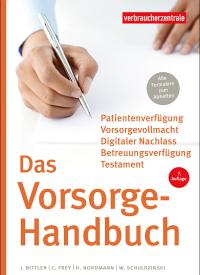What is important before signing the contract
☑ The cold rent is the pure net rent, excluding operating and ancillary costs.
Ask the landlord for the total costs.
Ask the landlord for the total costs.
These include
- heating and
- hot water production
- and some other costs
Depending on the flat, these additional costs can be very high and make the flat very expensive overall.
☑ Discuss the furnishings of the flat, the connections (telephone, television, kitchen, washing machine) and the overall condition of the flat when you move in.
☑ Check the lease for the duration and planned increases in rent. Sometimes a sliding scale is set for the rent, so it increases automatically in predetermined periods.
What is important when handing over a flat
☑ Read the handover protocol and fill it out carefully. Don't sign until you've checked everything and received the keys.
☑ Also enter the current meter readings for electricity, water and gas/heat.
☑ Defects in the flat, such as defective installations, doors or windows, and mould damage, are also recorded. The protocol notes who repairs these damages and when. The protocol is signed by the landlord and tenant. If there is no handover with the landlord, report defects on the day you move in and take photos of the meter readings.
What is important after the handover of the flat
☑ Register at the Residents' Registration Office or Citizens' Registration Office. To do this, you must present the landlord's attestation.
☑ Report your meter reading and meter number for electricity to the electricity supplier and conclude a reasonably priced electricity contract. Do you also use gas in the flat? Then you also have to take care of it (as with electricity).
☑ Set up standing orders or direct debits for regular rent, gas and electricity prepayment.
☑ Label the doorbell, letterbox and door sign. Communicate your new address to important contacts, contractors and authorities.
☑ Are you exempt from the broadcasting fee? Then send the completed social authority form to the Contribution Service Office.
☑ In the house rules you can often find information about cleaning duties, waste disposal and other things that are important to all tenants. Do you have any questions about this? Talk to the landlord or a neighbour.
How is the billing for the energy done?
☑ Only one instalment is paid each month – this is an estimate and only counts as a deposit!
The total account for a whole year comes much later.
This applies to all types of energy in the home: Heating, hot water, and electricity.
If there's a central supply for heating and hot water, you'll receive the statement for this with the operating costs statement as a "heating costs statement".
It's advisable to read the meters monthly for control purposes where possible: Hot and cold water, gas meter if applicable.
Electric meters are often located in the basement (ask the caretaker).
☑ Questions about energy costs, heating and ventilation are answered by the energy advice service of the consumer advice centre. You can find more information and the advice centre at: www.verbraucherzentrale.de
The German Tenants' Association ( Deutsche Mieterbund) will advise you on tenancy law (subject to a fee).





